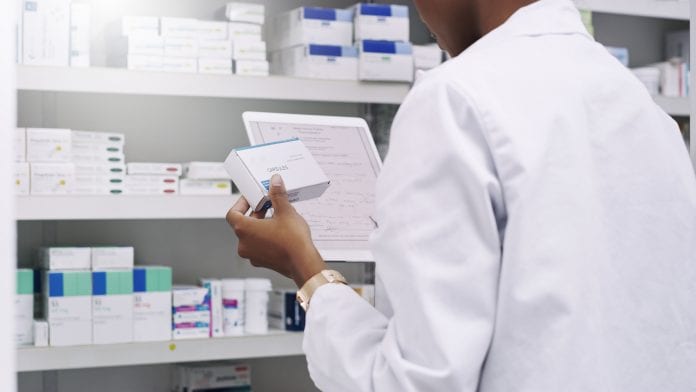
The UK Government is providing £16m in funding to hospitals across England to introduce digital prescribing.
Patients and staff across 16 hospitals in England are to benefit from single electronic hospital patient records that will see the introduction of ‘e-prescribing’, which has already helped to improve patient safety.
Medical staff will now be able to access information on prescribed medicines and patient history, reducing reliance on handwritten notes and preventing medication errors by up to 30% compared to paper systems.
Digital system by 2024
The funding is part of a £78m investment effort to eliminate paper systems and introduce digital prescribing across the entire NHS by 2024 – part of the NHS Long Term Plan.
Minister for Patient Safety, Nadine Dorries said: “We are determined to make the NHS the safest healthcare system in the world. The introduction of digital prescribing systems has helped us reduce potentially deadly medication errors and save our hard-working staff valuable time, enabling them to dedicate their full attention and care to patients.
“As we enter what is set to be a challenging winter, the best way we can continue to protect patients and staff is if we all work together and continue to follow the national restrictions to suppress the virus.”
Dr Paul Curley, Deputy Medical Director and Chief Clinical Information Officer at Mid Yorkshire Hospitals NHS Trust, which received £1.6m in 2018, said: “At the Mid Yorkshire Hospitals NHS Trust we successfully implemented eMeds, our ePMA system. eMeds has revolutionised prescribing and improved medicines safety across the trust, and a number of benefits have been realised including high staff satisfaction levels, greater visibility of prescriptions and reduced prescribing errors.
“We deployed eMeds at significant pace across three hospital sites in 10 months, against a planned implementation period of 24 months. We believe that our ePMA project has been one of our most successful implementations and was driven by the objective of clinical improvement. It was completed only months before the COVID-19 pandemic and so was hugely beneficial for our overall response.”
























